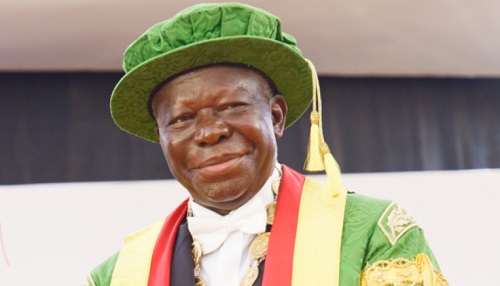Politics should not be this adversarial! Like many of you, I watched with disapproval the incident on the premises of UTV, a local TV station, where citizens who described themselves as partisans of the ruling New Patriotic Party (NPP) forced their way on to the set of a show to express their displeasure at what they deemed as attacks on their party and key figures within it.
It is my sincere opinion that this is not something we must defend, justify or seek to explain.
The use of force to settle political disagreements should not be a tool we legitimise.
More importantly, we must strive to protect the sanctity of our media spaces as best as we can.
This is not to say we must excuse conduct that undermines democracy.
In the most recent Afrobarometer Survey (Round 9, 2022), seven out of 10 Ghanaians (74 per cent) expressed support for media rights.
That says a lot about our commitment to see the media flourish.
I have another concern as I reflect on this incident.
Our democratic temperaments
If you enjoy politically themed movies, you will appreciate the movie The American President, starring Michael Douglas.
There are so many thought-provoking lines in that movie, but this is one of my favourites – “You want free speech?
Let’s see you acknowledge a man whose words make your blood boil, who’s standing centre stage and advocating at the top of his lungs that which you would spend a lifetime opposing at the top of yours.”
This is the litmus test that the president in the movie advocated as the yardstick by which citizens demonstrate their belief in free speech.
It is not an easy litmus test to pass especially in an environment of strong partisan feelings.
However, it is a test we must strive to pass daily.
The national cohesion the Ministry of Information pointed to in its statement responding to the incident will not only come from the content of shows in our media spaces but from how citizens respond to each other on political matters.
The more I reflect on democracy in Ghana, our thirty-year journey so far, and the task ahead as we deal with various challenges, I have become increasingly interested in this idea of democratic temperament.
These are the ideal behaviours we must strive to exhibit in our political spaces if we are to strengthen the democracy, I keep saying we have made our peace with.
For the most part, I have focused my reflections on the ideal behaviours of state actors as it deals with citizens.
I recently wrote about this in a Centre for Democratic Development Ghana (CDD-Ghana) blog post where, among many other things, I urged state actors to exercise the highest form of forbearance in dealing with citizens.
But there is another important dimension that cannot be overlooked.
I urge you also to reflect on this important idea of democratic temperaments by answering the following questions.
How should citizens treat their fellow citizens in our political spaces?
How should we respond to political speech and actions we disapprove of or may even find offensive?
Let us practice forbearance.
The same forbearance I ask of state actors.
When you look up the dictionary definition of forbearance, it is defined as “patient self-control, restraint and tolerance.”
You see, democracy has its “irritations.”
The demands of democratic governance can feel so overwhelming sometimes that political actors it seems get “irritated” when the demands are activated.
But if we have made our peace with democracy, as I forcefully and consistently argue, then we must also make our peace with the “irritations” that come with it.
The way forward
We are entering a major election year soon.
Citizens will engage each other in passionate debates about conditions in the country.
This is what gives life to democracy.
How are we going to respond in these debates especially to things said that we disagree with?
How are we going to respond when our “irritations” are triggered?
This is my concern and the reason why we cannot give legitimacy to actions that undermine the positive democratic temperaments needed to sustain our peace with democracy.
I don’t know if democratic temperaments can be taught.
However, I do know that developing them has become more important than ever.
As our democracy evolves, the character of citizens must evolve too. Perhaps leadership at the political party level can find ways to cultivate these positive temperaments in their most loyal supporters.
The National Commission for Civic Education (NCCE) can also help.
Prof. Joshua Miller, whose research has examined in detail this idea of democratic temperament, views them as the solution to what he describes as the “mean-spiritedness that characterises so much current political discourse.”
I agree with him.
The writer is a Democracy and Development Fellow at the Ghana Centre for Democratic Development (CDD-Ghana).
Source: GraphicOnline








